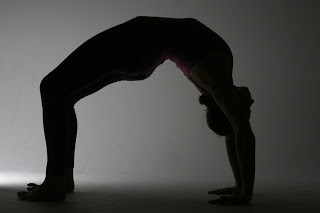I currently have the privilege of teaching yoga to individuals in recovery from drugs and alcohol. They are awesome. They are also a special sort of yogi. Basically they are starting their lives over. Starting fresh. They have this amazing opportunity to begin life again with a clean slate.
Isn't it great to be alive?
And because they're in recovery and working through all the shit that got them there in the first place, they are particularly open. They are looking for something real and sustainable to help them maintain their sobriety and lead fulfilling lives. At least that's what I'm hoping...
So, I sort of see it as my job to provide that real and fulfilling activity. One of the aims of yoga is to open your eyes to what is real. To the reality of the universe, of yourself, of life. Most of us as humans lead our lives as if in a trance oblivious to the wonders of being alive. It's so easy to get bogged down in the mire of day to day crud. If you constantly keep yourself busy with to-do lists, it's easy to avoid examining the reality of being alive.
I am currently reading Yoga and the Quest for the True Self by Stephen Cope which is a vast tome of yogic and psychology knowledge. It's packed to the brim with philosophical gems like this one:
"If you want to experience the joyous ecstasy that life offers, there is one commitment that is absolutely fundamental: the commitment to live in the moment. With that commitment as your guiding focus, whatever you do in your daily life is part of your
transformational process. Your commitment to the living in the moment becomes your vehicle for spiritual growth." (p. 113)
And another:
"The goal of the reality project is not to disengage from the phenomenal world, but to turn to embrace it more and more deeply—to discover its hidden depths. And in order to do that, paradoxically, we do not reject the vicissitudes of the embodied life. We do not reject suffering. Rather we turn and go through the doorway of suffering. We turn to embrace our neuroses, our conflicts, our difficult bodies and minds and we let them be the bridge to a fuller life. Our task is not to free ourselves from the world, but to fully embrace the world--to embrace the real." (p 115)
So. My challenge with these new yogis who are newly sober and eager to embrace reality (maybe?) is to give them a well-rounded experience of yoga. A bit of asana, some breathe work, some meditation, some philosophy and even some yoga nidra. In an hour. Twice a week. How can I fully convey to these people the great depth of what it is I'm teaching? How can I offer them something that awakens them to reality? And the potential for the practice to create real and lasting change within them? What is yoga to these people? What is yoga?
Is this yoga?
Yesterday we were ending class with baddha konasana before savasana. One or two of them was complaining of the stretch. I told them to think about leading with their sternum as though they could lay their heart center down onto their feet. Well, they thought that was pretty hilarious. And one of them asked if that was the goal.
Now, I probably could have just said that "yes, putting the head to the ground and the heart on the feet was the goal of the pose" and left it at that. But no. No! I owe to these people in flux to give them something more.
Here's what I offered:
Me: If the goal of yoga was to be flexible, then any gymnast could come in and automatically be good at it.
Student: But that's not the case?
Me: No.
Student: Really?
Me: Really. The goal of yoga is not to be flexible. What good is that going to serve you in your life? The reason that we do a practice on the mat is to learn to deal with difficulty. We purposefully put ourselves into challenging postures to see how well we can continue to breathe and be present. So that when shit comes up for you in difficult times, you have some tools for knowing how to be present and how to deal when life is challenging. If you can stay in the moment and be clear about what's going on in the mind, then you are doing yoga.
It was simple. It was a 2 minute little philosophy lesson. It made me feel so alive and present in myself that I was instantly filled with joy. I don't know what they think about it now or if they have even thought of it since. But in that moment, I was exactly the sort of teacher that I want to be.




